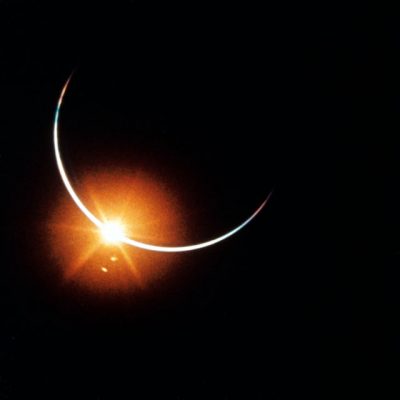
In many cultures, a solar eclipse was thought to be due to an animal or demon trying to eat the sun or moon. People would bang on pots and pans or drums to drive the threat away. For some cultures an eclipse is a time of terror, but for others it is a time for reflection and reconciliation. Whatever meanings we ascribe to it, we know that solar eclipses are natural occurrences whereby the moon passes between the sun and the Earth. This year’s eclipse is the first total solar eclipse to be visible in the continental U.S. since 1978 and the first to cross the entire country from west to east since 1918. Columbia is lucky to be in the middle of that path. We will have 2 minutes and 37 seconds of totality. That doesn’t seem very long but if you didn’t know the science behind it, it could be a bit terrifying.
Whatever you do, please view the eclipse safely. Momma always said “Don’t look directly at the sun,” but you can just this once if you use a pair of eclipse glasses. Free glasses have been handed out from several locations and there are more available for purchase. NASA has warned, however, that there have been some unsafe glasses distributed. To make sure that your glasses are safe, look for the manufacturer’s name and address plus the icon “ISO 123212-2”. This icon shows that your glasses are compliant with the necessary safety standard. Don’t use lenses that are scratched, wrinkled, punctured, separating from the paper or over 3 years old. Children should be supervised during the viewing. And please DON’T use a homemade filter or regular sunglasses! If you have tried your eclipse glasses on, you will know why you should not move around with them on and for, goodness sake, don’t try to drive with them! And as sad as it might be, it’s recommended that you not use them if you have had eye surgery or have an eye disease. Maybe a friend can just tell you how cool it is. You will still get to experience the two minutes of totality.
If you attended one of our programs on the eclipse, you learned that partial phase will begin around 11:45 a.m. in Columbia but will be barely visible at that time. You should be able to see the “solar bite” at that point if you are using filtered binoculars or telescopes, but solar glasses wearers will need to wait a little longer. It will get darker as partial phase advances and miniature crescent suns will be visible with an aperture. At 1:05 p.m., near the end of partial phase, the sky will darken quickly and the solar disk will shrink to a thin crescent. The “Diamond Ring” effect followed by Bailey’s Beads will appear at about 1:12 p.m. You may feel the temperature drop and the wind decrease and most animals will suddenly get quiet. Totality will arrive at 1:12 p.m. in west Columbia with the sky fading to near black. It will be safe to view without glasses after the last bright flash of the solar corona. You can use binoculars until the end of totality at 1:14:54 p.m. Totality ends the way it began by moving back into partial phase with Bailey’s Beads and the Diamond Ring (eclipse glasses need to be back on at this point) and partial phase will end around 2:40 p.m. If you are using a camera, you will need a solar filter to protect the camera just as you need eclipse glasses to protect your eyes.
Another facet of safety for this eclipse may simply be to watch out for the crowd! It has been estimated that 400,000 people will be coming to Columbia to view this event. Every hotel room has been booked for weeks. That’s a lot of people! There will be a Total Solar Eclipse “Survival Party” at the Fulton branch library and a View the Eclipse event in the parking lot of the Ashland branch, and there will be many other local events happening that day. You could even be a citizen scientist for NASA. All library locations will be closed from 12:30 p.m. to 1:30 p.m. August 21 so everyone gets a chance to experience the eclipse.
Please drive safely and view safely. And if you happen to miss this one, there will be another total eclipse on April 8, 2024 across southern Missouri and Illinois with totality lasting four minutes! I’m going to go bang a drum and reflect on this once (maybe twice) in a lifetime event.


